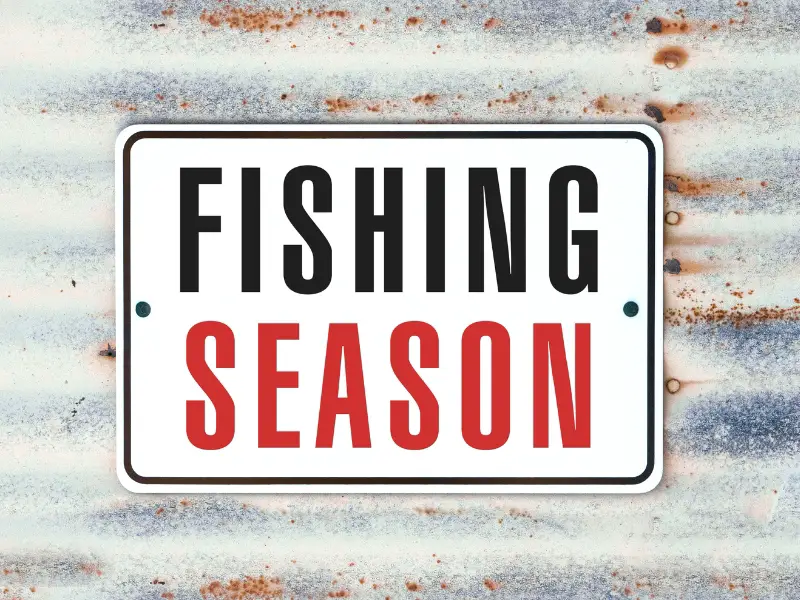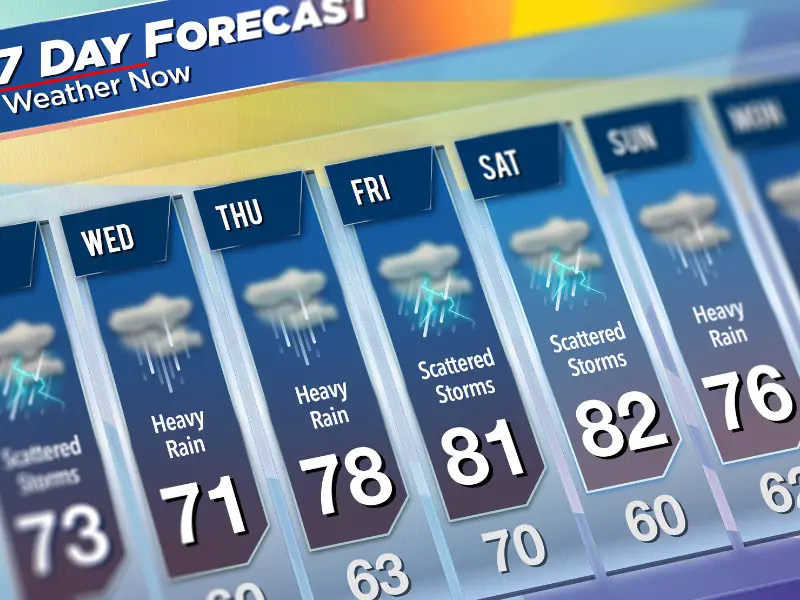Knowing when and where you can go fishing is essential for a productive fishing trip. The start of the fishing season varies from one state to the other, so check state fishing regulations before making plans for the next fishing trip.
So, when does the fishing season start? The fishing season’s start depends on several factors, including your location and the species of fish you want to catch. In most states, the fish season starts in March. But don’t forget that season’s starting dates vary, so contact the local fish and game commission for exact fishing season dates.
There are many different rules and regulations to keep in mind for saltwater and freshwater fishing. Therefore, we’ll only be able to give you general information on the best times to catch fish. Keep reading to learn everything you need to know about the start of fishing seasons across the US.
Is There a Fishing Season?

Technically you can go fishing throughout the United States and Canada at any time of the year. However, in most states, the fishing season opens in spring and closes in fall.
The start of the fishing season varies across the US. The opening of the fishing season depends on local fishing rules and regulations and the species of fish you want to catch.
Keep in mind that the state fishing rules and regulations and opening season dates are subject to change. So you must stay up to date with the latest information. Before heading out on the water, check the local fishing regulations, and don’t forget to bring your fishing license.
Is Fishing Season All Year?
For many anglers, the fishing season ends when the fish stop biting. However, certain fish species, like catfish, can be caught and harvested all year round in most places.
While some fish may be caught throughout the year, most species become dormant in the winter months in colder areas, and their activity is significantly decreased.
For example, tuna fishing season starts in June and lasts until November. But winter is an excellent time to catch catfish in Texas and many other states. Winter is an excellent time of year to catch trophy class catfish in Northern Texas on Lake Worth, Lake Lewisville, and Eagle Mountain Lake.
What Season Should I Start Fishing?
Spring and fall are usually the best seasons for fishing. However, you can have a successful day on the water in the middle of winter on a mild afternoon.
Regardless of when you’re fishing, avoid extreme weather conditions. Sweltering heat and extreme cold make fish less active and uninterested in feeding.
The mild temperatures and stable weather conditions are the best times to head out on the water to catch some fish.
Besides spring and fall, early summer mornings are an excellent time to head out on the water. Just remember to get an early start because the sun’s blazing rays can heat up the water quickly, sending the fish into cover and deeper waters.
When Should You Not Fish?
Big storms accompanied by lightning and thunder are the worst times to be fishing in the open waters. However, the time immediately before a storm is one of the best times to catch fish.
Impending storms push fish into a feeding frenzy and create perfect conditions for a productive fishing trip.
The drop in the barometric pressure pushes the fish towards the surface and shallower waters teeming with baitfish and insects. This increases your chances of hooking a fish.
But while the impending storms are one of the best times for fishing, there’s little reason to keep fishing once the storm hits.
The pattering of the heavy rain on the surface of the water and lightning stops the feeding frenzy and sends the fish into hiding. But that’s not all.
Standing soaking wet near the water, and holding a carbon fishing rod during a thunderstorm is extremely dangerous. A fishing rod can act as an antenna and attract lightning, especially when fishing in wide-open spaces such as the open sea or lakes.
Stormy weather conditions put you at risk of being struck by lightning. Stop fishing at the first sign of the approaching storm and lightning and move away from the water as fast as possible.
When Does Fishing Season End?
Like the beginning of the sportfishing season, the end of the fishing season varies and depends on several factors. In most states, fishing seasons end in fall or winter.
But some states also have a short fishing pause during the summer’s oppressing heat. The summer fishing break may also correlate with the fish’s spawning patterns.
Bear in mind that it’s illegal to catch fish during the closed season. This also includes catch-and-release fishing.
Since fishing rules and regulations differ across states, check the start and end dates of a local fishing season.
What Is the Best Weather for Fishing?

The weather has a huge impact on fish activity. Knowing the best weather for fishing can significantly improve your chances of landing a catch.
Different weather conditions, including sunlight, wind, and rain, influence the fish’s behavior. Due to their anatomy, weather patterns and barometric pressure affect fish differently than humans.
High barometric pressure usually indicates clear skies, while falling barometric pressure usually means a storm is coming. As the barometric pressure lowers, the fish go into a feeding frenzy, making this an ideal time for fishing.
Low-pressure weather conditions just before a storm create some of the best fishing opportunities for beginner and seasoned anglers. The lower barometric pressure makes the fish more active because they don’t know how long the storm will last and want to obtain energy reserves with this last-minute feeding.
For fishing in these weather conditions, use bright and quick lures to grab the fish’s attention and spur it to bite.
Sunlight is another factor that affects fish activity. As cold-blooded creatures, fish rely on their environment to maintain their body temperature.
The best time to go out fishing is around dawn or dusk, while the sun’s rays that beat down on the water aren’t too hot. The water will become too hot by noon, especially on sunny days, and the fish will move deeper into the cooler water.
Is It Okay to Fish During Summer?
Spring, summer, and fall are the best seasons to fish. However, many anglers pack up their gear and take a break from fishing during the summer’s sweltering heat.
As the weather gets hot, fish activity slows down, and fish move into deeper, cool waters. Having said that, you don’t have to give up fishing in the summer, you just need to adapt to hotter weather conditions.
Fishing in the summer can be as rewarding as fishing in the spring or fall. With the proper warm-weather fishing tactic, you can catch more fish than you would on colder days.
Largemouth bass and other fish find shelter from the heat in deep pockets of cool water. When fishing in hot weather, look for current, fish fast, and go deep to get a fish hooked.
Is It Okay to Fish During Winter?
When winter and cold weather arrive, most anglers hang up their rods and wait for more favorable conditions. But you don’t need to give up fishing just because it’s cold.
If you’re appropriately dressed and are ready to adjust your fishing techniques to the colder weather, fishing in the winter can be just as exciting as fishing in the spring.
Most anglers believe it’s impossible to land a catch in the dead of winter but that’s not the case. While winter fishing is more challenging, you still have a chance of bringing home a nice catch.
Although most fish species become dormant and feed less during the winter, that doesn’t mean they’ll ignore the bait if you present it correctly. The great thing about fishing in the winter is that fish tend to stay in groups, meaning more fish will be on your bait.
With the right tactic and some preparation, you can have a productive day fishing in the dead of winter.
Conclusion
When the fishing season start is the most important question for many anglers. In most states, the fishing season starts in spring and lasts till the end of fall.
However, the fishing season’s starting date varies from one state to another. It depends on the local fishing rules and regulations and the type of fish you want to catch. When planning a fishing trip, check the local fishing regulations, or risk being caught on the water in the off-season.